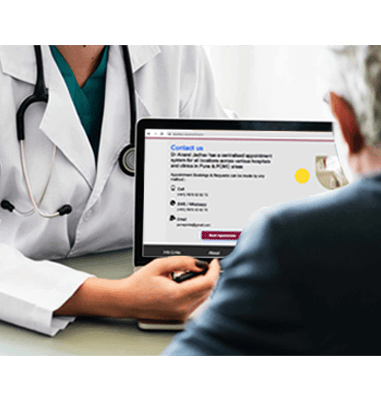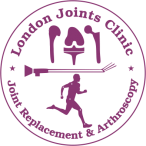PRE-OP INSTRUCTIONS FOR PATIENTS
PRE-OPERATIVE INSTRUCTIONS FOR PATIENTS NEEDING SURGICAL TREATMENT:
Patients posted for surgical treatment are given appropriate information about their surgery, the hospital chosen for their surgery, the costs involved for treatment and the admission processes involved. Printed instructions are provided to such patients.
DrJadhav also briefs all his surgical patients about benefits of their planned surgery and the likely risks and complications. Patients are encouraged to ask questions to clear any doubts about their surgery or treatment.
All patients need to undergo pre-operative fitness check by the anaesthesia team and a physician. Pre-operative tests and investigations, as required, are performed and their reports reviewed by the medical & anaesthesia teams before they declare patients fit for their surgeries.
If any patient is NOT found to be fit for surgery due to any reason, then these patients are first treated and optimised for surgery. Such patients are taken for surgery whenever they become fit for surgery.
Patients having any tooth, gum, bladder or bowel problems are needed to be treated first for these problems before their orthopaedic surgery can proceed as planned. This helps to reduce the risk of infection later.
If they have any ongoing infection, then this must be reported to Dr. Jadhav. Surgery cannot be performed until all infections have cleared up.
Patients are encouraged to eat a well-balanced diet and take supplements where needed.
Patients are also advised to arrange their household items in such a manner that they will find it easy to reach all necessary items without the need for bending or lifting, on their return home. They must also have help at home for their daily tasks like cooking, washing, cleaning and shopping.Loose carpets must be removed and electric cordsor any cables must be tapped down to avoid falls.
Patient should also ensure that their bed will be of appropriate height on return from the hospital, they have a commode seat fitted to raise its height where needed, they have appropriate walking aids / support and a firm chair, of more than 18 inch seat height, with side arms and cushions.
Pre-operative Tests routinely performed for all major surgeries are:
- Haemogram
- Urea, Electrolytes & Creatine
- Blood Sugar – Fasting (F) and Post-prandial (PP)
- Bleeding Time & Clotting Time
- Prothrombin Time & INR
- ECG
- 2 D Echocardiography
- Chest X-ray
- Blood group + / – reservation of 2 units of blood (PCV), where needed
- Additional blood tests or other investigations may be needed, based on patient’s health status and medical / orthopaedic problems.
Patients are asked to stop certain medications 5 to 7 days prior to surgeryas per the instructions of the anaesthesia or medical team. These medications could be blood thinners (aspirin, warfarin, clopidogrel) or those which affect wound healing (anti-rheumatoid medications).
FASTING INSTRUCTIONS FOR PATIENTS BEFORE PLANNED SURGERY:
Patients need to be fasting when they are posted for their surgery. Normally we need minimum six hours of fasting prior to surgery and patients are instructed NOT to eat any solid foods 6 hours prior to their surgery. But we do allow consumption of sips of plain water only up to 3 hours prior to surgery. Then the patient’s status remains strictly nil by mouth(NBM). Simply speaking this means no solid food within last 6 hours and no liquids within last 3 hours.
Written instructions are always provided to patients to help them in their preparations for their surgery.
For patients having surgery in the morning hours e.g. @ 8 am, we provide the following instructions:
- Normal dinner is allowed the night before.
- Patient can take few sips of plain water till 5 AM on the morning of surgery. After 5 AM they remain strictly NBM.
- NO breakfast, tea, coffee or any sweet / fizzy drinks are allowed for such patients.
- They must also not chew gums, mints or candies.
- Patients can take regular medications like anti-hypertensive medications, thyroid medications etc early morning with little sips of water.
- Patients are advised to refrain from smoking and consuming alcohol at least for 24 hours prior to their surgery.
For patients having surgery in the afternoon hours e.g. 1pm, we provide following instructions:
- Light early breakfast at or before 7 AM. This breakfast can include tea and 2 toasts only.
- Then strict NBM for solid food
- Any regular medications can be taken with breakfast with sip of water.
- Can take sips of plain water only up to 10 AM.
- No tea, coffee, sugary or fizzy drinks are allowed.They must also not chew gums, mints or candies.
If any patient breaks above fasting instructions, then their surgery gets delayed or even cancelled for the day. A new date and time will need to be assigned for their surgery to proceed.
Fasting instructions are mandatory to follow as it avoids patient from vomiting during anaesthesia and getting choked due to their stomach acid. Vomiting can lead to serious or life-threatening complications.
Additional patient instructions before hospital admission:
- You may be admitted a day before your surgery or 2-3 hours before your planned surgery.
- Patients are instructed to carry all their recent blood investigation reports &films of any X-rays / MRI / CT scan with their reports, when coming for admission.
- They must also bring along any hearing aids, glasses, walking aids and any slings or braces.
- They must carry along all written instructions and their health-related files, documents and identity cards like Adhar & PAN cards.
- Patients are advised to bring all their regular medications with them
- They can be accompanied by a family member or a close friend.
- Patients should wear loose fitting clothes and flat shoes or chappals
- They must shower/bath that morning before surgery to avoid chances of infection
- Patients are advised NOT to bring along expensive items, jewelleries or large sums of cash with them. The safety of these items cannot be guaranteed by any hospital authorities. All valuables should be left with the accompanying family member or friend.
- Patients must ensure that they carry with them sufficient cash or any payment cards to pay for their hospital bills. All patients going for surgery are given office permission(OP)after they pay the necessary deposits or if they are pre-authorised for cashless treatment under their medical (health) insurance policy. Only patients with office permissions can be taken for surgery.
- Patients will need to get registered at concerned hospital if not previously registered. They are given an unique wrist ID band that has their details and registration number. They are then sent over to their ward or room of choice and eligibility (for insurance patients)
- If a patient wishes to upgrade his room category, then he has to pay higher bill amount as per the selected room and hospital schedule of charges. If a medically insured patient wants to upgrade to a room category higher than his entitled or eligible room, he will have to pay for the entire difference (gap amount) between his approved bill amount and the actual bill amount.
- After getting admitted to his room, the patient gets seem by a team of ward doctors who go through the patient’s medical records and history. All regular medications are documented on the drug chart and administered as usual.
- Patient’s allergies to any known substances get documented and highlighted in red.
- A consent form for the surgery is duly filled and signed by the patient and the treating surgeon. The side for surgery gets marked with a permanent marker pen after confirmation with the patient.
- Fully prepared, appropriately consented and after getting confirmed office permission, patients are shifted to the operation theatre (OT), about 30 minutes before their surgery. The ward nurses accompany the patient during their shifting to the OT waiting area and carry all investigation reports and films. Patient is then handed over to the OT nursing staff. Patient’s identity and all documents get re-confirmed. Standard protocols are followed at all hospital for ensuring patient safety. After all checks, patients are shifted to their designated operation theatre for their surgery.
- The anaesthesia team do their part in anaesthetising the patient and Dr.Jadhav will then proceed to perform the planned surgery. Type of anaesthesia used may be general anaesthesia, spinal or epidural anaesthesia, local or regional nerve blocks or a combination of these. All these matters are explained to patient during their pre-op meetings with Dr. Jadhav and also by the anaesthesia team of the selected hospital.
- We have pre-booked surgery slots for all planned surgeries. But in some circumstances the start time for patient’s surgery may get delayed due to some emergencies or difficulties in the previous surgery. Dr. Jadhav and his team members will keep the patient and their relatives / friends updated if such delays do occur.
We appreciate and thank our patients in advance for their patience and understanding in such cases of unavoidable delays.
Book An Appointment
Private Clinics : Locations & Directions
London Joints Clinic (Pune)
Address
Office S 5, 2nd Floor, North Block, Sacred World Mall,
Opp Sacred Heart Township, Near Jagtap Chowk,
Wanawadi, Pune 411040
Monday to Saturday
6 PM to 9 PM
Appointments
Hospitals OPDs : Locations & Directions
Jupiter Hospital (Baner)

Address
Lane 3, Baner- Balewadi Road,
Prathamesh Park,
Baner, Pune 411 045
Monday to Saturday 11 AM to 4 PM
Appointments
Contact us
Dr Anand Jadhav has a centralised appointment system for all locations across various hospitals and clinics in Pune & PCMC areas
Appointment Bookings & Requests can be made by any method :

